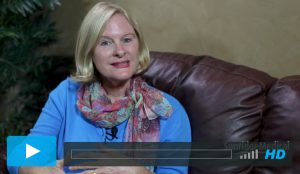Alternative Breast Cancer Treatment Options
Cancer Care Patients seek alternative breast cancer care at every stage of their cancer journey.
Some at the beginning, immediately following a breast cancer diagnosis, and some who have exhausted all conventional therapies of chemotherapy, radiation, and surgery. For almost two decades, Sunridge Medical has treated patients with all types and stages of cancer including Stage 4 (stage IV) breast cancer and metastatic breast cancer.
This very personal diagnosis becomes rather clinical quickly when so many treatment options are offered including conventional and alternative breast cancer treatment. Since there are several types of breast cancer and many stages of breast cancer with malignant to benign (non-cancerous) tumors, not one breast cancer treatment plan is the same.
Some at the beginning, immediately following a breast cancer diagnosis, and some who have exhausted all conventional therapies of chemotherapy, radiation, and surgery. For almost two decades, Sunridge Medical has treated patients with all types and stages of cancer including Stage 4 (stage IV) breast cancer and metastatic breast cancer.
This very personal diagnosis becomes rather clinical quickly when so many treatment options are offered including conventional and alternative breast cancer treatment. Since there are several types of breast cancer and many stages of breast cancer with malignant to benign (non-cancerous) tumors, not one breast cancer treatment plan is the same.
The Sunridge Approach to Cancer
 The Sunridge approach to Breast Cancer treatment is to study the whole body, investigate the underlying cause of the cancer, understand the diagnosis and how the cancer manifested, establish the overall wellness of the patient and their ability to respond to treatments; then based on these findings deliver the best treatments to stop the cancer and stave off additional disease.
The Sunridge approach to Breast Cancer treatment is to study the whole body, investigate the underlying cause of the cancer, understand the diagnosis and how the cancer manifested, establish the overall wellness of the patient and their ability to respond to treatments; then based on these findings deliver the best treatments to stop the cancer and stave off additional disease.
We combine conventional and alternative breast cancer therapies to provide patients with the most successful, comprehensive breast cancer treatment. Our cancer plan aims at attacking cancer and restoring the body’s natural defense and regulatory mechanisms, including the immune system and detoxification pathways.
More importantly, our strategy includes balancing hormones, cleaning up the gut, and maintaining wellness to prevent breast cancer reoccurrence by building back what was missing in the body when the illness was first detected. At Sunridge Medical we offer a comprehensive immunobiological treatment aimed at attacking cancer and restoring the body’s natural defense and regulatory mechanisms, including the immune system and detoxification pathways.
Our approach combines alternative and conventional therapies to provide patients with the most overall comprehensive breast cancer treatment. Because successful cancer treatment is not a “one size fits all” approach, substantial time is spent with each patient to learn more about the details surrounding their illness as this is a necessary component of developing the right treatment.
Why Did I Get Breast Cancer?
When cancer cells form in a body with a healthy immune system, they are identified and destroyed before they become tumors by the body’s natural defense mechanism. Restoration of the natural defense system should be an important part of the cancer care fight and be a part of successful, long-tern recovery. Breast cancer is a complex disease that requires a serious approach. At Sunridge, identifying all the factors which led up to the cancer diagnosis allows us to build a detailed battle plan to eradicate cancer and restore the body to optimum health. We investigate the specifics about the development of cancer in your body and its root cause to answer why you have developed breast cancer.
Breast Cancer – A Second Opinion
 We are ok being second, if we are the second opinion after a breast cancer diagnosis. Alternative breast cancer treatment can be considered a second choice when all other treatments have failed. It is true that Sunridge Medical can help even if all other conventional treatments have failed and we are a last resort. When Sunridge Medical is the second opinion at the beginning of a healing journey, we have an impressive impact on the breast cancer outcome. We look at cancer differently than the traditional oncologist who sees cancer as treating it traditionally with surgery, chemo, and radiation. Although sometimes that traditional treatment can be effective for an abbreviated time, it does not always eradicate cancer and stop its reappearance, which is our goal.
We are ok being second, if we are the second opinion after a breast cancer diagnosis. Alternative breast cancer treatment can be considered a second choice when all other treatments have failed. It is true that Sunridge Medical can help even if all other conventional treatments have failed and we are a last resort. When Sunridge Medical is the second opinion at the beginning of a healing journey, we have an impressive impact on the breast cancer outcome. We look at cancer differently than the traditional oncologist who sees cancer as treating it traditionally with surgery, chemo, and radiation. Although sometimes that traditional treatment can be effective for an abbreviated time, it does not always eradicate cancer and stop its reappearance, which is our goal.
Naturopathic Oncology and Integrative Oncology
Patients receive care from more than just our doctors; Sunridge has an integrated cancer care team with access to an arsenal of treatments that gives us the confidence to treat all stages and forms of breast cancer.
Naturopathic oncology is a holistic process that looks at the entire system of a patient and aims to discover the cancer source. Integrative oncology is a newer trend in cancer care that looks at the most effective treatments alternative cancer care and conventional care offer to use the best of each world. There is a stronger focus placed on the ability of alternative cancer care to build up the body stronger than conventional treatment which often leaves permanent damage.
Combined with the Sunridge approach, this methodology makes our treatments powerful against the eradication of cancer. We use the most current research for cancer therapy treatments along with modalities that have a solid history of success. We offer our own state-of-the-art laboratory testing at Sunridge Medical along with our compounding and specialty pharmacy prepared for individualized treatment plans that meet our patients’ needs.
Standard of Care
The “Standard of Care” in breast cancer is surgery, radiation, chemotherapy, and hormone therapy. Many patients diagnosed with breast cancer are reluctant to undergo the suffering, toxic and caustic nature of chemotherapy. However, some conventional doctors refuse to participate in the treatment of a patient unless their “Standard of Care” is followed, leaving patients cut off from traditional medical support.
Sunridge Medical physicians welcome working with a patient’s conventional physician and additionally, we have an incredible network of the best-in-their-class surgeons and radiologists that can support any health protocol a patient chooses.
The Effects of Chemotherapy and Natural Chemicals
Chemotherapy is like pouring weed killer on a garden. The flowers get damaged and die right along with the weeds, but then even more resistant weeds find their way to the surface. Chemotherapy attacks every cell in the body. Hair cells stop their ability to hold onto the hair follicle in many chemo treatments because the chemo has attacked a healthy cell. Neuropathy is induced because the chemo attacks healthy nerve cells. Organs such as the heart and kidneys, even bones can be permanently damaged because chemotherapy indiscriminately attacks healthy cells and cancer cells.
On the contrary, several natural chemicals can create a specifically programmed cell death (apoptosis) of cancer cells by penetrating the cancer cell membrane. Apoptosis attaches a genetic message for a cell to self-destruct. Omega 3’s, Resveratrol, Vitamin C, pine tree bark, and an exhaustive list of morphing substances found in nature can have this miraculous effect, especially when delivered directly into the bloodstream intravenously.
It is fair to say that alternative breast cancer therapy has side effects, however, those effects in no way rank in the same caustic category of chemotherapy.
Types of Breast Cancer We Treat
Invasive Ductal Carcinoma Breast Cancer (IDC) cancer begins in the milk ducts and invades the walls of the duct to spread into lymph nodes and other areas of the body. As the most common form of breast cancer, effective treatment varies on current treatments and the overall health of the immune system.
IDC Type: Tubular Carcinoma Breast Cancer is a subtype of invasive ductal carcinoma (IDC) which is often a less aggressive type of breast cancer that responds well to conventional treatment however following up with alternative cancer treatment to undo the damage of chemotherapy builds up the immune system which is critical to prevent a recurrence.
IDC Type: Medullary Carcinoma Breast Cancer is a rare subtype of IDC, often a less aggressive type of cancer that only spreads to the lymph nodes. Medullary Carcinoma typically responds well to conventional treatment however treatment with alternative cancer modalities is necessary to address the damage from chemotherapy allowing a strengthening of the immune system to prevent a recurrence.
IDC Type: Mucinous Carcinoma Breast Cancer, also called Colloid Carcinoma is a rare subtype of IDC, found inside the mucin in mucus around the breast and is often a less aggressive type of breast cancer that responds well to conventional treatment. However, it is necessary to follow up with alternative cancer treatment to address the harm of chemotherapy and strengthen the immune system to prevent a recurrence.
IDC Type: Papillary Carcinoma Breast Cancer, named because of finger-like projections seen in the tumor is often diagnosed along with Ductal Carcinoma In Situ (DCIS). Papillary Carcinoma can be moderate to very aggressive and often has many conventional therapies thrown at the tumor to address its abnormal activity. The root cause of cancer needs to be addressed and the immune system is robbed of all its ability to prevent the recurrence of cancer.
IDC Type: Cribriform Carcinoma Breast Cancer invades the connective tissues of the breast and cells can be pure Cribriform Carcinoma or a mix. Often diagnosed with Ductal Carcinoma In Situ (DCIS), Cribriform Carcinoma typically has a positive prognosis the tumor can be more aggressive and larger in size. If treated conventionally at first, it requires the root cause of cancer to be addressed and building up of the immune system which is stripped of all its ability to prevent the recurrence of cancer.
Ductal Carcinoma In Situ (DCIS) cancer begins inside the milk ducts and is a non-invasive, non-terminal cancer. However, DCIS cancer can increase the risk of developing invasive breast cancer. Effective treatment includes building up the immune system and the ability to fight off cancer in the future which is imperative.
HER2 Positive Breast Cancer is an aggressive form of cancer that responds well to medicines designed to treat HER2 proteins and benefit from hormone balancing.
Triple Negative Breast Cancer (TNBC) tumor is a cancer that tests negative for estrogen, progesterone, and the HER2 protein, which indicates traditional hormonal therapies will not be effective therapy, and HER2 protein receptor targeted medications are ineffective for treating the NNN-Cancer. Treatment is effective with immunotherapy.
Invasive Lobular Carcinoma (ILC) also known as infiltrating lobular carcinoma is cancer that begins in the milk-producing lobules that are connected to the milk ducts. There are several subtypes of Classic ILC including Solid ILC, Alveolar ILC, and Tubulolobular ILC. Non-classic Invasive Lobular Carcinoma includes Pleomorphic ILC and Signet ring cells. Conventional treatment typically includes the use of cancer drugs.
Lobular Carcinoma In Situ (LCIS) Breast Cancer also known as lobular neoplasia is not actually true cancer but indicates abnormal cell growth and a high likelihood of developing cancer at a later stage. With traditional medicine, this condition typically requires “careful observation” instead of any intervening treatment. It is critical to work with our practice to discover the source of the LCIS and treat the underlying condition to stop the advancement of cancer.
Inflammatory Breast Cancer is a rare but very aggressive cancer. If conventional chemotherapy is the first treatment protocol it is necessary to discover and treat the genesis of the cancer cells as well as restore the immune system which is badly damaged by the chemotherapy.
Triple Positive Breast Cancer (TNBC) tumors are HER2-, Estrogen-, and Progesterone- Positive. Triple-positive cancers can be treated with immunotherapy, hormone drugs, and drugs that target HER2 proteins.
References
Hear From Our Patients

Sue Ann, Phoenix, Arizona

Roslyn, New York
For answers and to make an appointment, call toll-free
800-923-7878 to speak with our Patient Care Team.
Recover your vitality, reclaim your energy and rediscover your health.


